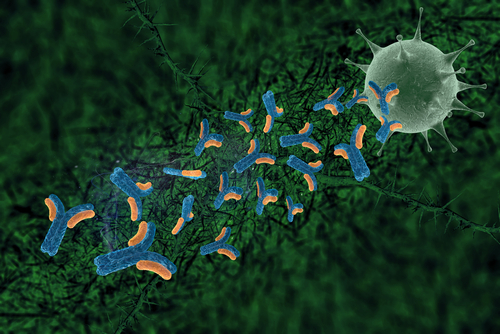 The U.S. Food and Drug Administration (FDA) has granted clinical stage biotechnology company Advaxis special approval for a Phase 3 clinical trial to evaluate the safety and effectiveness of the company’s lead immunotherapy drug candidate, axalimogene filolisbac (Axal), for patients with high-risk, locally advanced cervical cancer (HRLACC). Cervical cancer is the third most common malignancy among women worldwide.
The U.S. Food and Drug Administration (FDA) has granted clinical stage biotechnology company Advaxis special approval for a Phase 3 clinical trial to evaluate the safety and effectiveness of the company’s lead immunotherapy drug candidate, axalimogene filolisbac (Axal), for patients with high-risk, locally advanced cervical cancer (HRLACC). Cervical cancer is the third most common malignancy among women worldwide.
Advaxis, based in Princeton, New Jersey, has multiple cancer immunotherapies under development based on its proprietary Lm Technology, which uses bioengineered live weakened Listeria monocytogenes (Lm) bacteria. Advaxis says it is the only known cancer immunotherapy agent shown in preclinical studies to generate cancer fighting T-cells directed against cancer antigens and to neutralize regulatory T-cells (Tregs) and myeloid-derived suppressor cells (MDSCs) that protect the tumor’s microenvironment from immunologic attack and support tumor growth.
The proposed Phase 3 clinical trial (AIM2CERV) authorized under the FDA’s Special Protocol Assessment (SPA) process is set to be conducted with the Gynecologic Oncology Group (GOG) Foundation, an international non-profit organization dedicated to promoting excellence in the quality and integrity of clinical and basic scientific research in gynecologic malignancies. Enrollment in the trial is to begin this summer.
Axal is bioengineered to target HPV-associated cancer. The AIM2CERV trial’s aims to compare disease free survival of patients treated with Axal to those in a control group receiving a placebo administered in the adjuvant setting following concurrent chemotherapy and radiotherapy (CCRT). Secondary endpoints include examining overall survival and safety associated with Axal.
In a completed randomized Phase 2 study in recurrent/refractory cervical cancer, treatment with Axal showed apparent prolonged survival, objective tumor responses, and a manageable safety profile either when used alone, or in combination with chemotherapy – which further’s development of Advaxis’ Lm Technology. The FDA has also has also granted Axal Orphan Drug Designation in the U.S. for treatment of anal cancer.
Special Protocol Assessment (SPA) creates a binding agreement with the FDA’s review division that the proposed trial’s protocol design, conduct, planned statistical analysis, and clinical endpoints adequately address scientific and regulatory objectives required to satisfy FDA criteria for submission of an application for regulatory drug approval.
Final marketing approval is contingent on efficacy results, a satisfactory safety profile, and the outcome of evaluation of the treatment’s risk and benefit profile demonstrated in the Phase 3 clinical trial.
 “Receiving a SPA for the AIM2CERV trial is a testament to the promising AXAL results we have seen in cervical cancer patients,” said Dr. Bradley Monk, professor and director of Gynecologic Oncology at Creighton University School of Medicine at St. Joseph’s Hospital and Medical Center in Phoenix, Arizona, and Lead Cervical Cancer Advisor to Advaxis. “The AIM2CERV trial will be a critical step in demonstrating that AXAL can be successful as an immunotherapy, with the trials goal to cure more women, and prevent disease recurrence.”
“Receiving a SPA for the AIM2CERV trial is a testament to the promising AXAL results we have seen in cervical cancer patients,” said Dr. Bradley Monk, professor and director of Gynecologic Oncology at Creighton University School of Medicine at St. Joseph’s Hospital and Medical Center in Phoenix, Arizona, and Lead Cervical Cancer Advisor to Advaxis. “The AIM2CERV trial will be a critical step in demonstrating that AXAL can be successful as an immunotherapy, with the trials goal to cure more women, and prevent disease recurrence.”
Daniel J. O’Connor, president and chief executive officer, said collaborative discussions with the FDA led to the SPA.
 “Obtaining a SPA for the AIM2CERV Phase 3 protocol was our number one priority this year and it has now been achieved,” O’Connor said.
“Obtaining a SPA for the AIM2CERV Phase 3 protocol was our number one priority this year and it has now been achieved,” O’Connor said.

